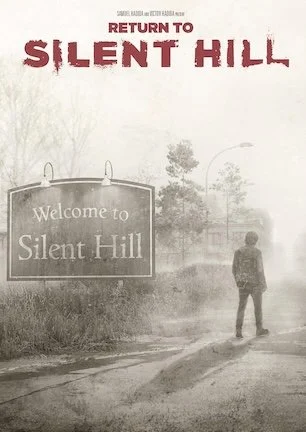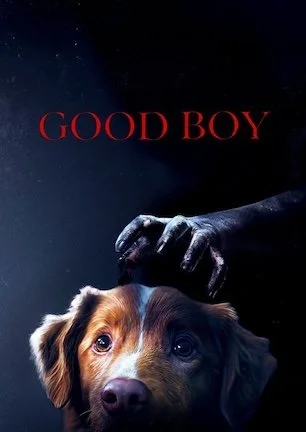Studio: Severin Films
Director: Paul Goodwin
Producer: Sean Hogan, Helen Mullane
Stars: Pat Mills, Dave Gibbons, Neil Gaiman, John Wagner, Dan Abnett, Kevin O’Neill, Grant Morrison, Alan Grant, Bryan Talbot, Brian Bolland, Alex Garland, Carlos Ezquerra, Scott Ian, Leah Moore, Peter Milligan, Karl Urban
Review Score:
Summary:
Comic creators discuss the inception, influence, and legacy of legendary British comic publication 2000AD.
Review:
Growing up in 1980s America, my baptism in British pop culture came from precisely two sources, “Doctor Who” and “Benny Hill,” a fact certain to spit afternoon tea across the screens of head-shaking Englishmen and Englishwomen reading that with sighing incredulity. I imagine it is a regrettable revelation akin to an American learning a European’s limited impression of U.S. entertainment comes solely from Jerry Springer and Jeff Dunham.
I can’t recall how or exactly when “2000AD,” the weekly anthology comic published since 1977, became the third point in that triangle. This is somewhat odd since the heads doing the talking in documentary feature “Future Shock: The Story of 2000AD” remember their first encounters with the magazine like shotgun blasts to the face. Subversive subtext. Ultraviolent art. Shocking stories of antiestablishment antiheroes unlike anything a comic book reader had previously encountered.
My inability to cite an unforgettable initial exposure is less a byproduct of faulty memory and more a testament to 2000AD’s extraordinary ability to clandestinely consume the subconscious as easily as it entrances admirers through brute force from a frontal assault. For good or for bad, 2000AD is a defining symbol as well as ambassador of British sci-fi/action entertainment on both sides of the Atlantic, particularly for those like me whose narrow exposure to such styling comes predominantly from this source.
2000AD became so symbiotically intertwined with my personal perception of quintessentially English hallmarks that on a trip to London in 2010, visiting famed comic shop Forbidden Planet specifically to purchase a 2000AD prog as a commemorative souvenir was every bit an essential tourist stop as Buckingham Palace, Tower Bridge, and Shakespeare’s Globe Theater. Failure to do so would be like not riding the teacups on a first visit to Disneyland. In my imagination, this was something of a sacred ritual experienced by five decades of British comic addicts devotedly scoring their weekly fix of Slaine, Chopper, Nikolai Dante, and Rogue Trooper adventures. I simply had to be part of that highly enviable collective.
2000AD’s tagline is “The Galaxy’s Greatest Comic.” If you don’t already agree with that sentiment, “Future Shock: The Story of 2000AD” makes a strong case for the comic’s claim to that title.
Like the publication it chronicles, “Future Shock” features a who’s who of British comic creators. Pat Mills, Dave Gibbons, Neil Gaiman, John Wagner, Kevin O’Neill, Grant Morrison, Alan Grant, Brian Bolland, Peter Milligan and too many more to mention lay out 2000AD’s history while highlighting its ongoing importance as an influential periodical consistently on the bleeding edge of counterculture commentary and boundary-pushing sequential art.
It’s a story centered in the world of comic book publishing. Of course this means that even if there were any meaningful archival footage, it would consist only of artists drawing and writers writing. The audience is thus unavoidably on the receiving end of nonstop sit-down interviews. There are noticeable absences such as Alan Moore, though everyone on hand is clearly excited to mentally relive their halcyon days of 2000AD past, even when times recalled are tumultuous, and their enthusiasm keeps the information engaging.
Director Paul Goodwin employs fantastic animated sequences by 3PS as a way of visually breaking up 100 minutes of spoken word while simultaneously managing to make original 2000AD inked and colored art appear even more stunning. Vintage photographs then fill in the picture of what 2000AD’s studio and staff looked like in its prime.
What you won’t find in “Future Shock” is an encyclopedic primer on Strontium Dog or D.R. and Quinch. “Future Shock” assumes its audience has more than a passing familiarity with key properties as well as a base knowledge of the personalities behind them. If you’re completely in the dark as to 2000AD’s scope, there will still be gaps to fill when end credits scroll.
At the same time, it’s refreshing that the film never devolves into a Judge Dredd lovefest by pandering to 2000AD’s best-known character. Going overboard on the mag’s most popular and internationally recognizable fictional celebrity would be easy. Yet the film’s full content comprises a fair and balanced presentation of what 2000AD signifies as a sum of its parts. Even when covering a specific creation such as Nemesis or Halo Jones, the documentary remains keyed into how each individual contribution relates to the bigger picture of 2000AD’s unifying themes and pop culture presence.
“Future Shock” can get caught up in keeping that vision broad. Musicians Scott Ian of Anthrax and Geoff Barrow of Portishead offer thoughts, as do a comics historian and a pop culture professor. “Future Shock” seemingly seeks some sort of outsider validity by expanding its interview roster beyond just the 2000AD stable. But these academic and famous fan perspectives amount to inconsequential input when Pat Mills and other original 2000AD contributors already have an iron grip on articulating the contextual significance of their creations.
The film scatters somewhat just past its midsection. Chronological structure goes out the window momentarily as coverage of 2000AD’s multimedia expansion bounces somewhat schizophrenically from the 2012 “Dredd” movie back to previous internal unrest in the editorial office. Here, the narrative becomes foggy about how various personalities relate to one other. Like when discord between Pat Mills and Andy Diggle is touched upon, as well as issues with editor David Bishop, it isn’t clearly spelled out who is in charge of editorial at the time, who controls publishing, who is an assistant, etc. Some confusion stems from puzzling out details behind similar anecdotes here and there.
Where “Future Shock” becomes fully fascinating is in its coverage of the mid-80s DC Comics British invasion and the almost imperceptible influence 2000AD has on broader popular culture. It’s at this point that even a neophyte can see how indebted entertainment is, perhaps at least partially unknowingly, to ideas born in 2000AD’s pages. As editor extraordinaire Karen Berger explains, “there wouldn’t be a Vertigo if there wasn’t 2000AD.” Filmmaker Alex Garland adds, “2000AD has probably on some level influenced everything I’ve ever written.”
Even when discussing DC’s poaching of 2000AD talent, the spotlight doesn’t swing towards what Moore and Gibbons were doing with “Watchmen,” for instance. The entire comic book landscape was changing in 1986. 2000AD was in turn transforming into an “American Idol”-like platform for British comic creators to be recognized by Marvel and DC, perceived as more prestigious publishers, and editor Pat Mills deeply resented it. While documenting this evolution, “Future Shock” as a story stays rooted specifically on how such events recharged 2000AD behind the scenes.
Being a colossal “Robocop” fan, “Future Shock” actually made me feel silly for never outwardly realizing how much, some would say all of, Alex Murphy’s genesis pinches from Judge Dredd. Less obvious influences 2000AD has had on American superhero comics are similarly highlighted. Whether it is having Nacho Vigalondo recount a particular strip’s direct impact on “Timecrimes” (review here) or outlining the family tree tying 2000AD’s DNA to the “Avengers” films, “Future Shock” showcases the publication’s prominence with crystal clarity.
Many consumers of popular properties may not be consciously aware how much of their media, and by extension their imagination, has been shaped by 2000AD, even if they themselves have never read a single prog. 2000AD has historically forced unlikely audiences to take notice of a cultural subsection that otherwise has no outlet in mainstream channels. Enlightening and engrossing, “Future Shock” is essential in understanding how 2000AD’s unflinching attitude of rebellious anarchy forever altered the entertainment world as everyone knows it. As Colin MacNeil concisely summarizes, “anyone can make a comic, (but) there’s only one 2000AD.”
Review Score: 85






It would be less hyperbolic to simply say “Whistle” is the most cliché-riddled thriller of 2025 and 2026 at a minimum.